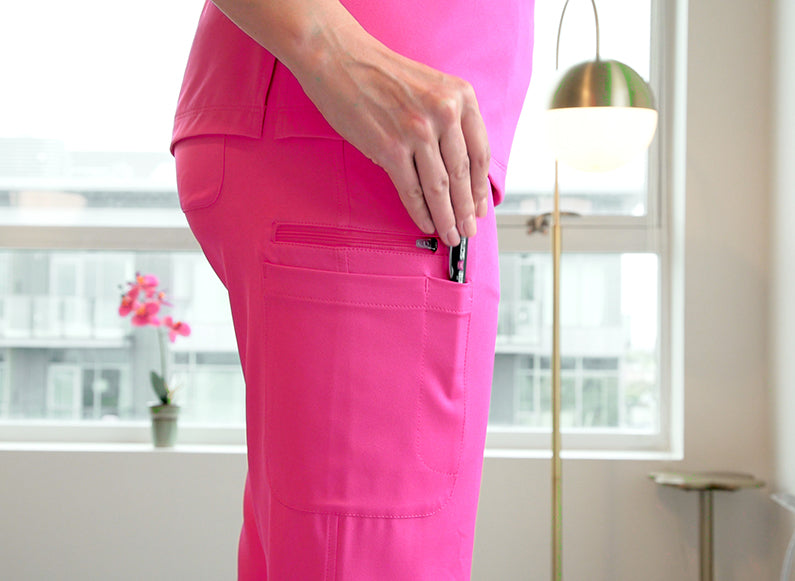Over the last few years, burnout has become a hot topic. However, for many nurses the phrase is more than just a headline. A recent study found that a whopping 32% of nurses who left the workforce over a year’s time do so because of burnout. Nurses fall into a higher risk category than most professions for developing burnout symptoms because of exhausting work conditions. But what exactly is burnout? And how can we prevent it?
Keep reading to find out what burnout is and how it can affect you. We'll also cover ways you can reduce your risk of experiencing burnout as a nurse.
What is burnout?
A psychological problem facing many people in the workplace today, burnout is defined by the American Psychology Association as “physical, emotional, or mental exhaustion accompanied by decreased motivation, lowered performance, and negative attitudes toward oneself and others.”
There are an endless amount of stressors that nurses face daily in our current healthcare environment. Staffing shortages and burnout are some of the biggest problems healthcare facilities face today. If nurses stop showing up for work due to burnout, who is going to take care of patients?
How Nurses can Prevent Burnout
The first step in preventing burnout is to understand what it is, acknowledge that it exists, and understand how to recognize it to enable necessary intervention. So, what does burnout look like for nurses?
Many of the symptoms of burnout are similar to those of stress. It is true that stress can lead to burnout, but they are two different conditions with subtle distinctions. The main difference is that while you are most likely aware that you are stressed out, burnout happens gradually, making it harder to recognize. Asking for help is one of the best things you can do for yourself if you are unsure if what you are experiencing is burnout.
Chances are, you work with nurses who are much more experienced than yourself, and they have probably experienced a similar situation at some point in their career. For many people, having someone who understands what it is like to do their job and be in their shoes can be helpful in dealing with stressful situations at work.
Nurses should evaluate what is important in their careers and personal lives. Understanding your personal limitations and goals in life can be the most important factor when it comes to recognizing and overcoming burnout.
Working as a nurse gives you the opportunity to have a lot of flexibility. Stress can be increased by having mismatched expectations of what you want for your career or personal life. If your job is the main source of stress, then perhaps it is time to evaluate your employment options.
What is self-care?
According to the World Health Organization (WHO), self-care is the act of health promotion, disease prevention, and lifestyle choices that can lead to a better management of diseases. Self-care is recognized as each person's ability to make health decisions for themselves based on individualized symptoms and a desire to preserve health.
Because self-care is so individualized, it is important for nurses to maintain self awareness regarding their own personal beliefs. Would you say that your current job fulfills you on every level? It is much easier to prevent burnout if you truly understand who you are, both personally and professionally.
Self-care tools to help you can prevent or reduce the risk of burnout:
-
Meditate. Meditation can be a great way for you to reflect about who you are and what's important to you.
-
Exercise. The benefits of exercise are well-known. It's no surprise that you should be regularly exercising to the best of your physical abilities. Whether you choose to run, do yoga, gently stretch, or swim, the right exercise feels great and also has lasting effects that can help motivate you throughout your entire day, such as improved circulation, pain reduction, and improved mood.
-
Sleep. Exercise and sleep are inextricably linked. Sleep is the recovery period for your body. Exercise can help regulate your sleep, which has the potential to improve the quality of your entire week. Also, try to wind down by turning off electronics 30 minutes before bed, which includes your phone. Grab a good book, a calming cup of tea, and relax naturally.
-
Eat healthy. The saying “you are what you eat,” is a statement nurses should live by. The long days on the floor will make you feel fatigued if you don’t treat food as an energy source. As mentioned above, exercise can also tie into this one. Knowing how much work it will take to burn off a particular indulgence from the break room could help you avoid it.
There are many ways that nurses can help themselves when it comes to facing burnout. With self-awareness and support, nurses can work together to reduce and prevent burnout.
Author Bio
Brittney Bertagna is a nurse writer with an entrepreneurial spirit. Her experience as a writer has allowed her to help many healthcare companies create web content for their websites to promote their services and build brand recognition.
With pediatric dental surgery, neonatal intensive care unit, and adult infusion experience, she has years of hands-on patient experience she can draw from. She is patient-focused and passionate about making a positive impact in the healthcare industry.
She also has a bachelor's degree in business administration with a focus on small business/entrepreneurship. With her educational and clinical background, she is the perfect nurse writer to translate healthcare products and services into relatable material for any patient population.





